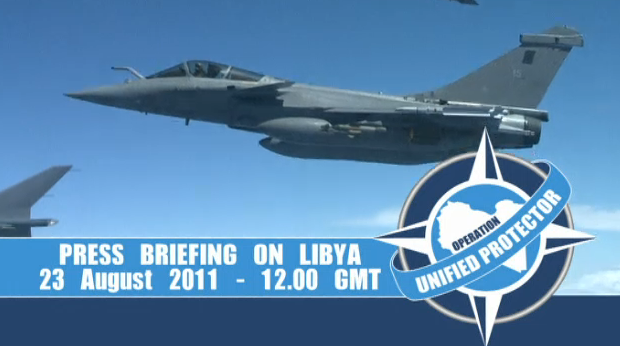The rebels in Tripoli, the hardest part begins?
(BRUSSELS2) The situation on the ground in Libya is becoming clearer in August, which also coincides with the Ramadan period. After the period of uncertainty of the first weeks, when there were significant kilometer advances and equally significant setbacks, the fronts had stabilized. And we had the impression of a stalemate. False impression all the same. But, in fact, little by little the rebels consolidated their positions. And with the help of Western advisers (British, American, Italian, French, even German), they managed to discipline themselves. The advances were thus more succinct, less rapid than hoped or announced, but continuous, solidifying a position before a subsequent advance. The objective was clearly to gradually loosen the grip on Misrata then on the Djebel of Nefoussa, and to connect the various points of resistance, to encircle Tripoli. A rather classic strategy that finds some precedents in history (1). And this "slowness", for those who know its historical ranges, is not really a surprise (2).
Assuming that the battle for Tripoli does not last too long, it will then be necessary to move on to another phase which will not be easy: to restore peace, to establish new rules of a rule of law which has not really worked, to disarm , demine, rebuild a national security force. It is undoubtedly the most difficult. The conditions of victory and especially the fate of Gaddafi and his clan (surrender, exfiltration, disappearance, resistance) will be essential for the future. The international community will then have to be ready to help the Libyans, not only to restart the oil wells, but also for the future.
It is to be feared that the Europeans, who have been very present at least in thought on this post-crisis system (3), will then react late and that they will only play a minor role compared to countries such as the United States, Turkey without forgetting each of the Member States (which may be tempted to play "personally").
(1) All things considered (because the stakes, the forces present were totally different), we are somewhat in the same strategy as that carried out in other wars of "liberation" such as in 1944-1945 in France (arrival on 2 essential points, junction with the other forces present in pockets, then bypassing the capital... except that Leclerc and De Gaulle at the time somewhat disobeyed their American mentors at the time).(2) Read also:
- Getting bogged down in Libya? A look back at some past military operations
- A month after the start of the Libyan campaign, what assessment? Why is it dragging?
(3) Read also:
